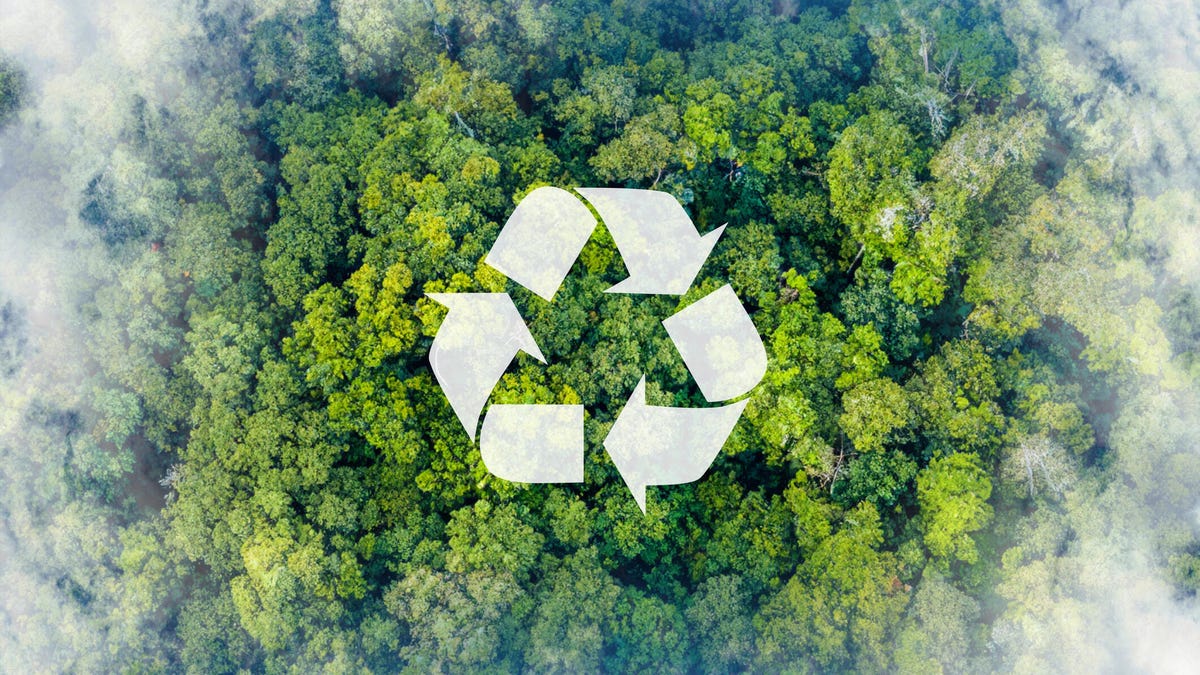 Why You Can Trust CNET
Why You Can Trust CNET Earth Day: Do You Know If These Items Can Be Recycled or Not?
How many can you get right?

Earth Day was started in 1970 to make people aware of damages to the environment. Since then, companies like Apple have introduced plans to reduce or eliminate their carbon footprint, and some companies, like Microsoft, have introduced product settings to use more renewable energy when it's available.
There are many ways you can help the environment, too, and one of those ways is by recycling certain items. According to the Environmental Protection Agency, recycling can help conserve natural resources and energy, and the practice can generate over $37 billion in wages. But do you know what items you can and can't recycle?
Test your recycling knowledge with this list of common household items and whether or not they can be recycled.
Note: Recyclable items may vary by location, so check with your local recycling center or government agency.
Pizza boxes?
Yes, even if the boxes have grease in them, they can be recycled, according to the EPA. However, you have to get rid of any food scraps, including uneaten crusts, and you have to flatten the boxes.
Hardcover books?
No, hardcover books can't be recycled. The covers are usually made of different materials, including plastic and leather, which aren't recyclable. The glue that binds the books together can be hard to separate from the pages as well. Besides, why recycle a book when you can donate it to a school, library or a nonprofit organization? Donating books can help people increase their vocabulary and improve their communications skills. Plus, it's a guilt-free way of making more room on your bookshelves.
Paperback books?
Yes, you can recycle paperback books, even if they're beyond repair. Like hardcover books, though, maybe consider donating the books if you want to get rid of them.
Batteries?
Yes. According to the EPA, lead-acid batteries are one of the most recycled items. This includes car batteries, too. However, batteries require special handling, so they need to be recycled at separate locations and can't be recycled in your home recycling bin. This tool can help you find a location to recycle your batteries.
Receipts?
No, you can't recycle receipts. Most receipts are coated with Bisphenol A, a plastic compound more commonly known as BPA. This compound makes the receipts unrecyclable, and it could be bad for your health, according to the Mayo Clinic. The best way to dispose of receipts is in the trash, but you might want to shred the receipt before throwing it away for financial security.
Stickers?
Stickers can be fun, but unfortunately you can't recycle them. The glue that holds stickers in place can gunk up recycling machinery, and some stickers, like vinyl stickers, can be harmful to the environment.
Carpet?
Yes, carpet can be recycled. Nearly all kinds of carpet can be broken down and used to make new products, and the complex fibers of carpet make it nearly impossible to break down in landfills. However, the infrastructure required to recycle carpet isn't widely available, and you can't put carpet in your home recycle bin. The nonprofit Carpet America Recovery Effort is one group working to put the necessary infrastructure in place to recycle carpet everywhere. For now, use this tool to find a location that will recycle your carpet.
Motor oil?
Yes. Many garages and auto shops recycle your old oil when you take your car in for an oil change. If you perform your own oil change, usually these same shops will accept oil for recycling. Like batteries, motor oil should not be put in a household recycle bin. The used material from one oil change is enough to contaminate one million gallons of fresh water, according to the EPA. Use this tool to find a location that will recycle your used motor oil.
Compostable plastics?
No, even though they're made from renewable materials, like corn, cellulose and soy protein, compostable plastics can't be recycled. "Compostable plastics aren't meant to be recycled and can contaminate and disrupt the recycling stream if mixed with non-compostable plastics," according to the EPA.
Wrapping paper?
Trick question -- yes and no. Shiny and laminated wrapping paper can't be recycled, but there is recyclable wrapping paper available. The EPA says a good wrapping paper alternative that is recyclable is newspaper. Plus, using newspaper as wrapping paper gives the gift recipient something to read while they wait to open their gift.
Bonus round: Aluminum cans?
Yes, empty aluminum cans can be recycled, but the cans can't be crushed. The EPA says crushed cans are harder to detect when being sorted within recycling facilities. All those shows and movies showing people crushing cans to take to the recycling center lied to us.
For more, here's how to recycle old tech and gadgets for free, how to use Best Buy's recycle-by-mail program and how plastics recycling misses the point.

